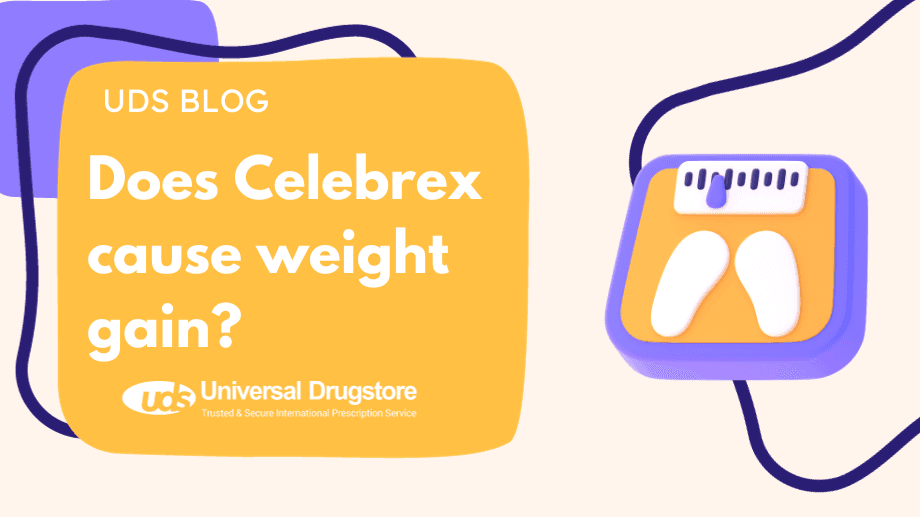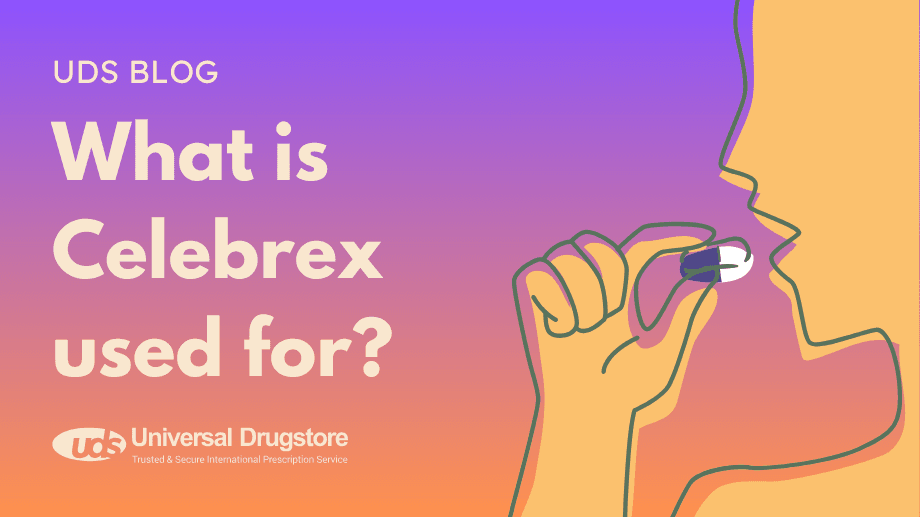How many ibuprofen equal one Celebrex?

Celebrex (celecoxib) and Advil/Motrin (ibuprofen) are both nonsteroidal anti-inflammatory drugs (NSAIDs) that treat pain and inflammation. Celebrex is a selective NSAID, meaning it is associated with a lower risk of gastrointestinal (GI) complications than nonselective NSAIDs like ibuprofen. Celebrex is available by prescription, while ibuprofen is available over the counter (OTC) in lower doses and by prescription in higher doses.
In a 6-week clinical study, 200 mg/day of celecoxib was as effective as 2400 mg/day of ibuprofen (800 mg taken three times daily) for treating osteoarthritis pain. Usual ibuprofen doses are 400 mg every 4–6 hours or 600–800 mg every 6–8 hours. Celebrex is typically dosed at 200 mg daily or 100 mg twice daily, and is considered to have less GI risk than ibuprofen, though possibly a higher cardiovascular risk.
Celebrex and ibuprofen FAQs
What is Celebrex?
Celebrex (celecoxib) is a prescription NSAID manufactured by Pfizer, approved to treat:
- Osteoarthritis
- Rheumatoid arthritis
- Juvenile rheumatoid arthritis (2+ years old)
- Ankylosing spondylitis
- Acute pain (e.g., back pain)
- Primary dysmenorrhea (menstrual cramps)
It is a COX-2 inhibitor that reduces prostaglandin production to relieve inflammation and pain.
What is ibuprofen?
Ibuprofen is a nonselective NSAID used to treat osteoarthritis, rheumatoid arthritis, mild-to-moderate pain, and menstrual cramps. Unlike Celebrex, ibuprofen inhibits both COX-1 and COX-2 enzymes. Inhibiting COX-1 increases the risk of stomach ulcers and GI bleeding.
What are the possible side effects of Celebrex and ibuprofen?
Common side effects include:
- Headache
- Stomach pain
- Diarrhea
- Indigestion
Severe side effects may include:
- Allergic reactions (hives, facial swelling, shortness of breath)
- Heart attack, stroke, or blood clots
- GI ulcers, bleeding, or perforations
- Liver damage or elevated enzymes
- High blood pressure or heart failure
- Kidney damage
- Severe skin reactions (rash, blisters, peeling)
These are not all possible side effects. Report side effects to the FDA at 1-800-FDA-1088 or www.fda.gov/medwatch.
What drug interactions are there with Celebrex and ibuprofen?
- Other NSAIDs (naproxen)
- Blood thinners (aspirin, warfarin)
- SSRIs (sertraline, fluoxetine)
- SNRIs (duloxetine)
- ACE inhibitors (lisinopril)
- ARBs (valsartan, losartan)
- Beta-blockers (metoprolol, atenolol)
- Diuretics (HCTZ)
- Methotrexate
- Alcohol
What warnings are there with Celebrex and ibuprofen?
Both drugs have FDA boxed warnings for cardiovascular and GI risks:
- Cardiovascular: May increase risk of heart attack and stroke, even at low doses. Risk is higher with heart disease or its risk factors.
- GI: May cause bleeding, ulcers, or perforations. Risk increases with age or history of GI problems.
- Do not take NSAIDs if you have had or will undergo CABG surgery.
Can you take Celebrex or ibuprofen while pregnant?
The FDA advises against using NSAIDs from 20 weeks of pregnancy onward due to risk of kidney issues in the fetus. After 30 weeks, NSAIDs can cause premature closure of the fetal ductus arteriosus, a vital heart blood vessel before birth.
Can you take ibuprofen at the same time as Celebrex?
No. Do not combine Celebrex and ibuprofen as both are NSAIDs. This increases the risk of stomach ulcers, GI bleeding, and other serious side effects. Consult your provider for alternative treatment options if needed.
Can you take Tylenol with Celebrex?
Yes, you may take Tylenol (acetaminophen) with Celebrex since they work differently. Tylenol can relieve pain but does not reduce inflammation. Always ask your healthcare provider before combining medications.
Can you drink alcohol while taking Celebrex or ibuprofen?
It is best to avoid or limit alcohol while taking NSAIDs. Alcohol increases the risk of stomach ulcers, GI bleeding, kidney, and liver damage. Inform your doctor of your alcohol consumption before starting NSAIDs.
Related Medications
- Anaprox DS (naproxen)
- Mobic (meloxicam)
- Cataflam (diclofenac)
- Voltaren Gel (diclofenac gel)
- Clinoril (sulindac)
- Lodine XL (etodolac ER)


